GLUCAGON RECOMBINANT - INJECTION
PHONETIC PRONUNCIATION: (GLUE-kuh-gone)
COMMON BRAND NAME(S): Glucagon, Glucagon Emergency Kit
GENERIC NAME(S): glucagon,human recombinant
Uses
USES: This medication is the same as your body's own glucagon, a natural substance that raises blood sugar by causing the body to release sugar stored in the liver. It is used to quickly increase blood sugar levels in diabetics with low blood sugar (hypoglycemia) who cannot take a quick source of sugar (e.g., fruit juices, table sugar, regular soda) by mouth. Glucagon is also given before some X-ray procedures of the gut to slow down the movement of the stomach, intestines, and colon, thereby giving a better X-ray picture.
How to use GLUCAGON RECOMBINANT - INJECTION
HOW TO USE: This medicine comes with a Patient Information Leaflet and Instructions for Use Leaflet. Read them carefully. Ask your doctor, nurse, or pharmacist any questions that you may have about this medicine. Keep this product near you at all times. Talk with your doctor about when you should use this product. This medication is given by injection. Learn in advance how to properly inject this medication so you will be prepared when you actually need to use it. Also teach a family member or caregiver what to do if you cannot inject the medication yourself. Friends and relatives of a diabetic patient should know the symptoms of low blood sugar (see also Precautions section) and be instructed on how to give glucagon if necessary. The patient should be treated as soon as possible during an episode of low blood sugar in order to prevent serious effects (e.g., brain damage). Prepare the medication as directed. Before using, check the product visually for particles, cloudiness, gel-like thickening, or discoloration. If any of these are present, do not use the liquid. After preparation, use the medication right away. Discard any unused liquid. Inject this medication into a vein, into a muscle, or under the skin as directed by your doctor. For children, the dosage may be based on their weight. If the patient is unconscious, turn the patient on their side to avoid choking in case they vomit, and inject the glucagon. Seek immediate medical treatment. If the patient does not wake up in 15 minutes, the dose may be repeated. When the patient wakes up and is able to swallow, a quick sugar source (e.g., glucose tablets, juice) should be given. Glucagon is only effective for a short time, and low blood sugar may return. The blood sugar level should be kept up by eating snacks such as crackers, cheese, meat sandwich, or milk. The blood sugar should be checked regularly as directed by the doctor. Always call your doctor right away when an episode of low blood sugar has occurred. You may need more medical treatment, or your insulin dose and diet may need to be adjusted.
Side Effects
Precautions
Interactions
Overdose
Images
Reviews
Disclaimer
IMPORTANT: HOW TO USE THIS INFORMATION: This is a summary and does NOT have all possible information about this product. This information does not assure that this product is safe, effective, or appropriate for you. This information is not individual medical advice and does not substitute for the advice of your health care professional. Always ask your health care professional for complete information about this product and your specific health needs.
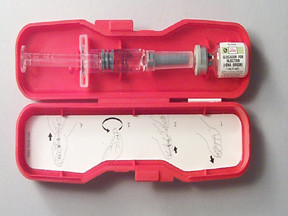
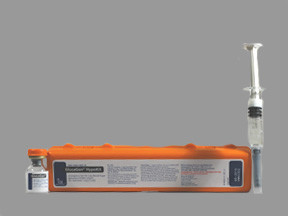

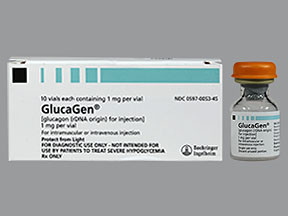
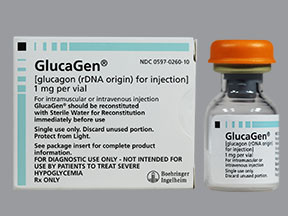
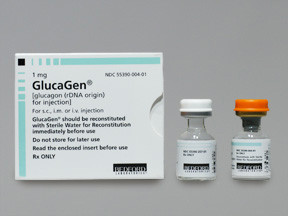
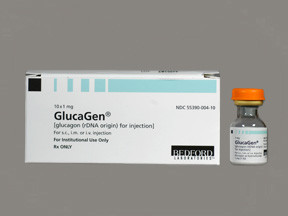
No Reviews Yet